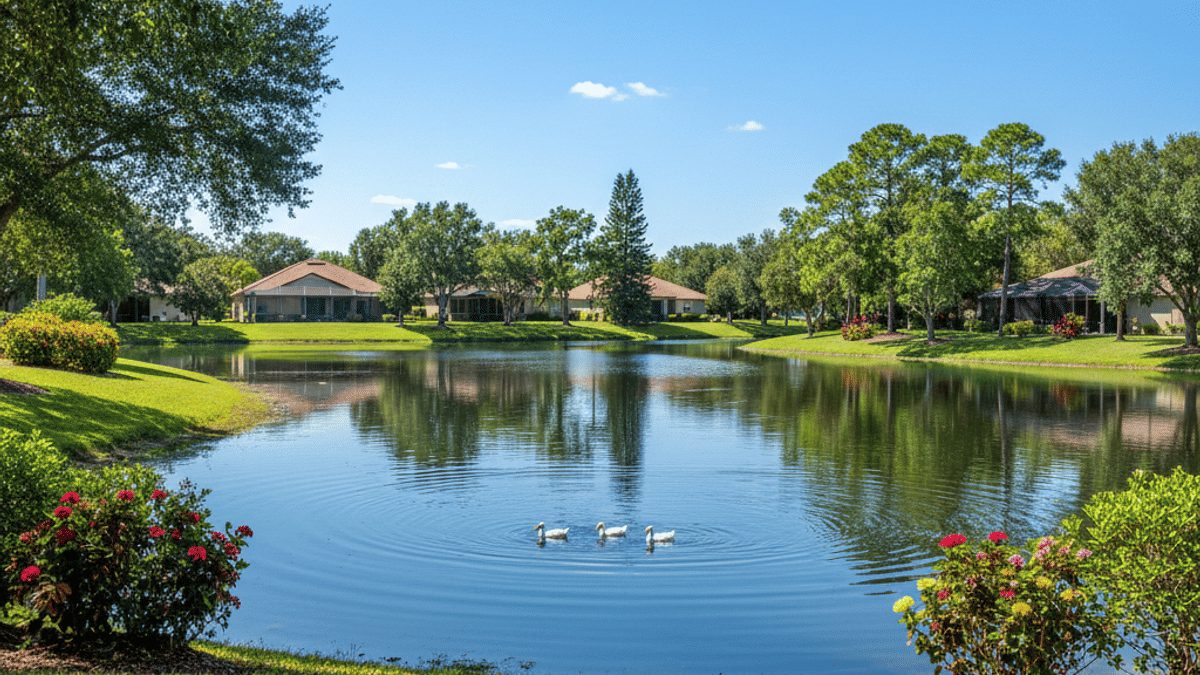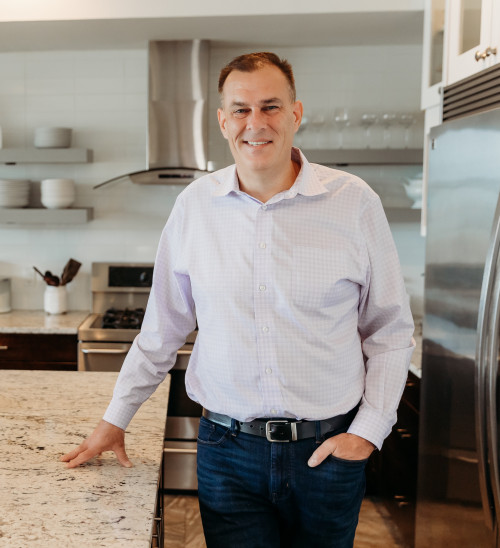Quick Pulse Check on Winter Park
Winter Park sits just north of Orlando, yet it could not feel more different. Oak‑lined streets, farmers markets every Saturday, Rollins College adding that intellectual buzz, chain of lakes glistening behind historic brick streets. People do not “pass through” Winter Park, they purposely plant roots.
The numbers back it up:
- Population has been inching up, roughly 2 percent a year.
- Median household income hovers around $90K, noticeably higher than the Orange County average.
- Roughly 61 percent of residents own rather than rent, a sign of serious pride of place.
Translation? Demand stays sturdy even when metro‑wide headlines scream slow‑down. New faces arrive for schools, empty nesters downsize from bigger Orlando homes, investors scoop up rentals near the university. Winter Park is less boom‑and‑bust, more steady glide path.
Still, that does not mean you can list your place on a whim and expect a bidding war. Timing matters.
Why Five to Seven Years Keeps Popping Up
Real‑estate blogs love the “five‑to‑seven‑year rule.” Where did it come from, and does it stick in Winter Park? Let us peel the layers.
Transaction Costs
- Realtor commissions.
- Transfer taxes.
- Title insurance.
- Moving vans, cleaning crews, staging furniture.
Those take a bite, usually 7 percent or more of the sale price. Owning at least five years gives your home value time to outpace those costs.
Mortgage Amortization
In the early years, most of your payment goes toward interest, not the principal. Hang on until year five, you start chipping away real equity. Year seven, even better.
Capital Gains Tax
Live in the home two of the last five years and you can exclude up to $250K in profit, $500K if married filing jointly. The rule is national, yet crucial in a steadily appreciating city like Winter Park.
Local Appreciation Curve
From 2018 to 2023, Winter Park posted average appreciation of roughly 6 percent annually, nudging the median price to about $490K. Multiply that by five years, you might see 30 percent or more growth, enough to cover fees and still pocket cash.
Does that mean you must stay exactly five years? No. It means that is the first checkpoint where selling typically stops feeling like a penalty and starts feeling like a payday.
When Hanging On Pays Off
Maybe you already crossed the five‑year finish line and wonder, “Should I stretch this to ten?” Sometimes yes. Let us hash out the perks.
- Compounding Equity: Each extra year after year five, a bigger share of the mortgage payment goes to principal. Equity snowballs faster than new buyers realize.
- Neighborhood Upgrades: Winter Park invests heavily in parks, brick‑street resurfacing, underground power lines. A fresh project can lift your block’s desirability overnight.
- Ultra‑Low Interest Rate: Locked in a sub‑3 percent mortgage during 2021? Replacing that with today’s 6 percent loan on a new place hurts. Staying put can feel like a low‑risk, high‑reward savings plan.
- Rental Play: If you plan to move but cannot stomach selling, consider holding the property as a rental. College parents hunting for off‑campus housing pay a premium near Rollins. A solid lease covers the mortgage and lets equity keep growing in the background.
- Emotional Equity: Friends next door, the barista who knows your name, the short paddleboard commute to Lake Virginia. Priceless.
When Enough Is Enough
There are moments when waiting becomes pricey. Keep an eye out for these signals:
- Major Repair Clock: Roof hitting twenty years, cast‑iron plumbing showing rust, HVAC wheezing louder every month. Sell before those big‑ticket items tank your net.
- Shifts in Zoning or School Ratings: Winter Park has excellent schools today. A boundary change could tug buyer demand elsewhere tomorrow.
- Opportunity Cost: Maybe you want a fixer‑upper in Maitland, or a lakefront in Seminole County. Tying up capital in your current place can handcuff you.
- Lifestyle Changes: New baby, new remotely‑based job, aging parents moving in. If the floor plan no longer fits, equity growth alone will not fix cramped hallways.
- Tax Exclusion Window: Remember that two‑of‑five‑year residency rule? Rent the house too long, and you lose the capital gains shelter. Mark your calendar.
If several boxes above light up, selling sooner rather than later makes sense—even if you are shy of the folklore seven‑year mark.
Winter Park 2025, By the Digits
Crystal‑ball time. Realtors keep whispering that 2025 will be “interesting.” Here is what data firms like CoreLogic and local MLS feeds suggest:
- Median Listing Price: Projected near $515K, a moderate climb from today.
- Days on Market: Expected to hover around 42, up from the pandemic‑era frenzy of 9, yet still balanced.
- Inventory: Likely 2.5 months of supply, short of a true buyer’s market yet giving shoppers more breathing room.
- Mortgage Rates: Economists split, yet many peg 30‑year rates in the 5.5 percent zone.
- Hot Pockets: College Quarter, Lake Killarney shore, and the Interlachen corridor show the highest pending‑sale velocity.
If those predictions hold, owners who purchased in 2019 at roughly $430K could list in 2025 for well past $525K. After fees they clear six‑figure gains, satisfying most retirement spreadsheets.
Even so, mild price growth means strategic upgrades matter. A refreshed kitchen or energy‑efficient windows can push your listing above the median and shave days on market.
Road Map to a Smart Exit
Ready to pin an exact “sell by” date on your calendar? Follow this punch‑list, no banker jargon required.
- Pull Your Equity Snapshot: Check your latest mortgage statement, subtract the balance from a realistic market value. Online valuations are a start, yet verify with a local agent who knows how Winter Park’s brick streets add hidden value.
- Stack Up Transaction Costs:
- Realtor commission, often 5‑6 percent.
- Title fees, recording fees, doc stamps, another 1 percent or so.
- Repairs or staging, can swing from $2K to $20K.
Add them. If potential profit after costs hits your goal number, next steps get easier.
- Check the Two‑Year Clock: Lived in the house at least two of the last five years? Great, you likely dodge federal capital gains tax on a big chunk of the profit. Miss that window, you may owe the IRS. The tax tail should never wag the life‑decision dog, yet ignoring it hurts.
- Factor Mortgage Rates: Compare your current rate with the best rate you can snag today. If moving up means doubling your rate, make sure the new home solves a problem you cannot fix where you are.
- Time the Season: Central Florida sees peak buyer activity February through May, right before the summer swelter. Listing in that window often nets top dollar.
- Interview Agents Now, Not Later: A seasoned Winter Park agent can drop neighborhood‑specific gems, like which brick streets flood in heavy rain or which side of Lake Osceola snags sunrise views buyers crave.
- Decide With Heart and Head: Promise yourself one gut check and one spreadsheet check. If both scream “go,” plant that for‑sale sign.
Real Talk Scenarios
You may see yourself in one of these mini‑stories. Use them as a mirror.
- The Newly Remote Techie: Bought a condo in 2021, realizes he can work from Denver ski country. At three years in, profit barely outpaces costs, yet future appreciation in Winter Park feels slower than Denver’s West Colfax corridor. He sells now, pockets $25K, and reallocates.
- The Growing Family: Couple purchased a two‑bed cottage in 2015 for $350K, rate 3.2 percent. Third child arrives, no room for bunk beds. They fear losing the low rate, yet the cottage gained $200K value. Selling buys them a four‑bed pool home in nearby Oviedo, still within driving distance of Winter Park’s brunch spots.
- The Empty Nester Landlord: Lived in a lake‑adjacent home for nine years, now spends half the year traveling. Instead of selling, she converts the property to a furnished monthly rental for Rollins visiting professors. Cash flow covers expenses, plus she keeps the capital‑gains exclusion alive by residing there two months every year.
Spot the pattern? There is no perfect one‑size answer. Context rules.
Mistakes to Dodge
Even savvy owners trip over the same potholes. Avoid these:
- Overpricing by “feelings” instead of comps.
- Ignoring deferred maintenance until the buyer’s inspection kills momentum.
- Listing two weeks before Thanksgiving when half the buyer pool is binging pie.
- Forgetting to align sale timeline with next‑home purchase. Bridge loans are pricey.
- Underestimating how emotionally draining showings can be if you still live there with pets or toddlers.
Your Move
So, how long should you own a home before selling Winter Park? The sweet spot often lands between year five and year ten. Early enough to capture capital gains exclusion and sidestep major wear‑and‑tear bills, late enough to outrun closing costs and ride Winter Park’s steady appreciation.
Still, the “right” moment is less about a magic number and more about personal math plus lifestyle dreams. Want help running the numbers or scouting that bigger backyard? Reach out. Together we will map a timeline that lets you walk away with confidence and, ideally, a fatter bank account.
Because selling a home is not just a transaction. It is the next chapter in your story. Ready to turn the page?





